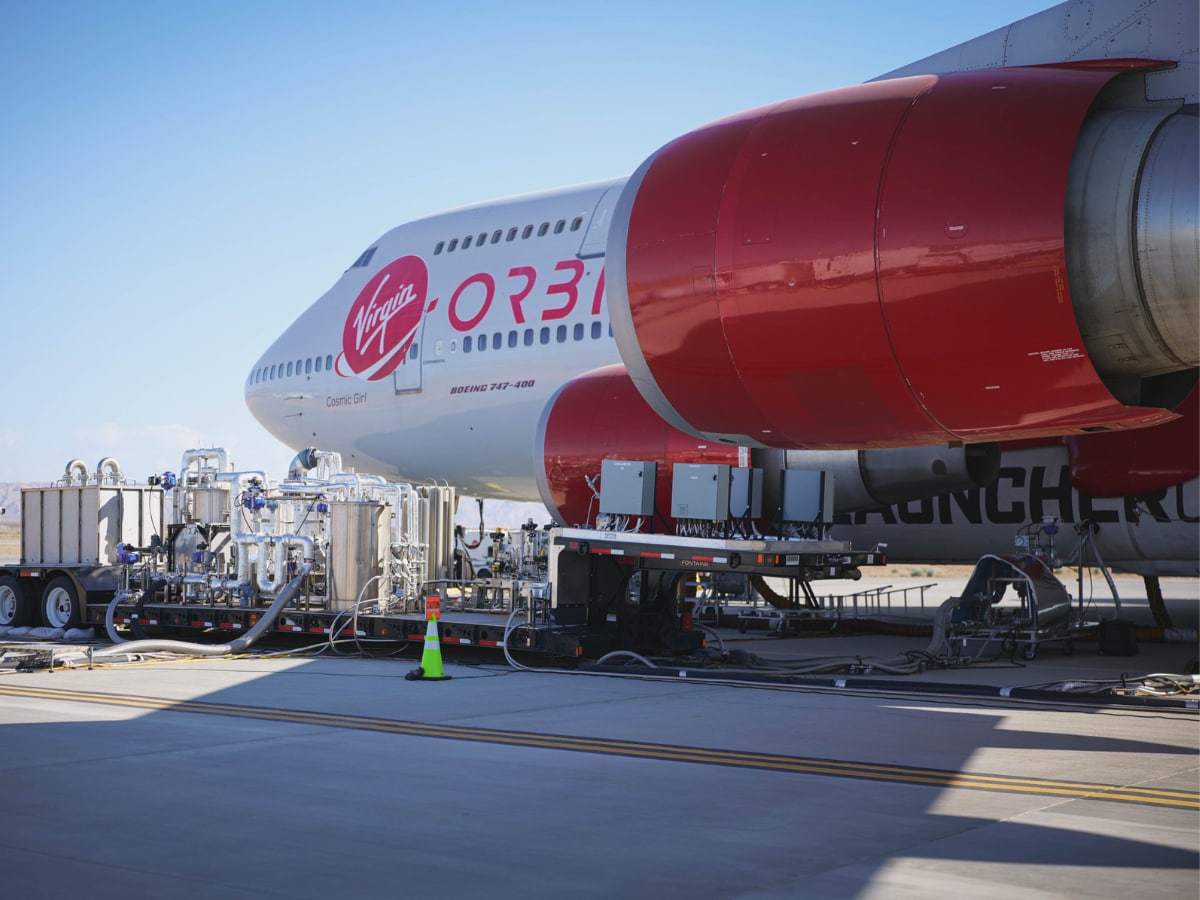At the start of 2023, Richard Branson’s Virgin Orbit was set to make history with the UK’s first satellite launch mission. But things went differently than planned. The mission failed and the satellite launch company has been falling like an asteroid ever since. Now near bankruptcy, it is in talks for a $200m lifeline. This is just above its $150m market valuation on 21 March – a lofty fall from its $3.7bn IPO valuation in December 2021. What went wrong with Virgin Orbit?
- On 15 March, Virgin Orbit furloughed its workforce of 750, halted operations, and began contingency planning for potential bankruptcy.
- The rocket launch company’s market valuation plummeted to a record low of $150m on 21 March, compared to its initial IPO valuation of $3.7bn.
- Virgin Orbit is close to securing a deal for a $200m investment from venture capital investor Matthew Brown through a private share placement, Reuters reported on 22 March.
Freefall
On 15 March, Richard Branson’s Virgin Orbit [VORB] furloughed almost its entire workforce and halted operations amid near-bankruptcy as it searched for a funding lifeline.
A week later, it resumed operations, bringing a “small” team back from the unpaid pause to continue working on its next launch despite a murky future. Its shares were up 60% in premarket trading on 22 March.
“Any viable path for our operations will require us to successfully launch,” Virgin Orbit CEO Dan Hart told his employees, describing it as a “first step” in an “incremental resumption of operations,” while the company extended the unpaid furlough and pause in operations for the remainder of the workforce through “at least” 27 March. Meanwhile, many of Virgin Orbit’s approximately 750 employees have begun looking for jobs elsewhere, according to a CNBC analysis.
Virgin Orbit shares dropped 30% on 16 March, closing at $0.71 per share, compared to their debut price of about $10 per share in December 2021.
The stock is down 42.44% in the last month, and 75.68% in the last six months, as of 27 March.
The company uses a modified 747 carrier jet to transport satellites into space. Virgin Orbit’s last mission aimed to make history as the UK’s first satellite launch, but failed mid-flight due to an anomaly, as Optoreported earlier.
A $200m lifeline
After talks with potential investors and contingency planning last week for a potential bankruptcy filing, sources told CNBC, it seems to have found a bidder.
Virgin Orbit is close to securing a deal for a $200m investment from venture capital investor Matthew Brown through a private share placement, according to a term sheet seen by Reuters.
In 2017, Virgin Orbit was established as a separate company from Virgin Galactic [SPCE], and Richard Branson is the largest shareholder with a 75% ownership. The Emirati sovereign wealth fund, Mubadala, holds the second-largest stake in the company, with an 18% ownership. Boeing [BOE] was also one of its initial backers. However, Virgin Orbit has faced challenges in maintaining its financial resources. While its sister company, Virgin Galactic, raised over $1 billion through stock and debt sales, Virgin Orbit struggled to secure funds in the same way after going public in December 2021 during the SPAC craze.
The rocket launch company’s market valuation plummeted to a record low of $150m on 21 March, compared to its initial IPO valuation of $3.7bn.
By the end of the third quarter, the company held $71.2m in cash on hand but had incurred an adjusted EBITDA loss of $42.9m. It subsequently raised approximately $55m in debt through the investment arm of Richard Branson’s Virgin Group.
Virgin Orbit has been exploring a range of other financial opportunities since the fourth quarter, from a minority interest investment to a full sale and has hired Goldman Sachs and Bank of America.
Funds in focus
Investors looking for exposure to the space industry can consider the ARK Space Exploration & Innovation ETF [ARKX]. This ETF, managed by ARK Invest, offers exposure to companies involved in space exploration, satellite technology, and related fields. Iridium Communications [IRDM], Trimble [TRMB], and Kratos Defense & Security [KTOS] are the ETF's top holdings.
The SPDR S&P Kensho Final Frontiers ETF [ROKT] also counts Iridium among its top three holdings, along with Maxar Technologies [MAXR] and Hexcel [HXL]. The fund is up 17.45% in the last six months.
Disclaimer Past performance is not a reliable indicator of future results.
CMC Markets is an execution-only service provider. The material (whether or not it states any opinions) is for general information purposes only, and does not take into account your personal circumstances or objectives. Nothing in this material is (or should be considered to be) financial, investment or other advice on which reliance should be placed. No opinion given in the material constitutes a recommendation by CMC Markets or the author that any particular investment, security, transaction or investment strategy is suitable for any specific person.
The material has not been prepared in accordance with legal requirements designed to promote the independence of investment research. Although we are not specifically prevented from dealing before providing this material, we do not seek to take advantage of the material prior to its dissemination.
CMC Markets does not endorse or offer opinion on the trading strategies used by the author. Their trading strategies do not guarantee any return and CMC Markets shall not be held responsible for any loss that you may incur, either directly or indirectly, arising from any investment based on any information contained herein.
*Tax treatment depends on individual circumstances and can change or may differ in a jurisdiction other than the UK.
Continue reading for FREE
- Includes free newsletter updates, unsubscribe anytime. Privacy policy





